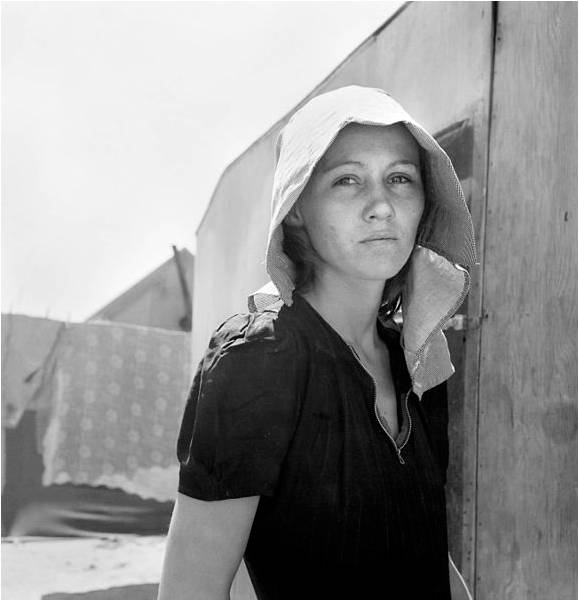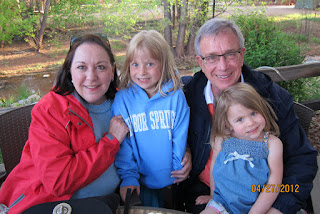
Walt and Naomi
Chapter Thirty-Five
Little Traverse Bay
A Novel
by Randy Evans
Walt might have spent more than ten years in prison, mostly because of dealing drugs, but Sheriff Parks contacted the County Prosecutor to request a reduction in his sentence. Some months earlier, a retired agent from the CIA contacted Parks, and gave him classified information on Walt’s service. Now Parks knew more than he could say to others. The judge provided Walt with a light sentence, and then referred him to the local mediation agency, because Stretch was still highly irritated with Walt for burning down his cabin, and placing Flash in harms way.
Stretch attended the hearing, and said to Walt, “Ever built a house?”
Walt said, “Nope, never did.”
“Well, when you get out of jail, you’ll find out. I’m not going to rebuild my place without help, and it might as well be you.”
Almost immediately, Walt was permitted work releases from prison, and he began to help Stretch create a new home. Stretch had time to give thought to how he would redo things, and he designed the cabin to be bigger and better in every way. He found a local stone mason to help him use stone to construct the exterior walls. He decided to have a large kitchen and nook so he could invite Nick over for breakfast once in a while “to return the hospitality”; a dog door, “for the convenience of Flash”; and a stone fireplace with a big hearth, “for Flash to warm herself by the fire on winter evenings.” Walt and Stretch gradually and grudgingly became friends, working in the hot sun no longer shaded by the burnt trees that once circled his cabin. After a long day working on the construction site at Devil’s Elbow, they would sometimes have meals together at the Moose Jaw, and occasionally, Nick and Zizi would join them. Even though he didn’t have to, Stretch paid Walt for his labor.
Once he got out of jail, joined an evangelical church. Some Sundays, he would stand up in the middle of the congregation in the middle of a sermon, and say, “Reverend, I disagree with what you just said.” The preacher would ask if they could discuss his concerns after church, and they did...often. Walt also joined the local Eagles Airie. Sitting at the bar one night as a guest, he asked how he might join. He was concerned about his past. One of the Eagles turned to him and said, “Do you believe in God?”
“Yes, sir, I do,” Walt replied.
“Then you won’t have any trouble gettin’ in!!” the Eagle said. Walt tried to buy drinks for everyone, but it was against the rules. Later he was more properly initiated, and since he was a veteran, his first year’s dues were waived. He actively served on committees and fund-raising events. He even won a 14-foot Lund fishing boat, motor, and trailer in a raffle. Walt also joined the American Legion Hall where he would make up war stories with such detail that no one could question him. Then he would mix in some true stories, stranger than his fabricated ones. He eventually gave up drinking, but he never gave up talking.
To supplement his income, Walt applied for employment at an ice cream and fudge factory in Petoskey. His first job involved paddling fudge on cold marble tables and hand dipping granny smith apples in caramel. Next, he was assigned to mix over thirty different ice cream flavors. Sheriff Parks vouched for him when he applied, since Walt had to check the “ex-felon” box on the employment application. When he interviewed, he didn’t mention he was a highly skilled meth chemist, but once on the job, he became nearly irreplaceable. After a year, the company gave him responsibility for orienting new employees. He took special pleasure in reviewing the “drug-free workplace” policy.
One day, Walt was walking down Mitchell Street towards the Bay with his head down against blowing rain from a stiff northwest wind. He nearly knocked down a beautiful middle-aged Odawa woman walking in the opposite direction. He caught Naomi Greenleaf on his own way down to the sidewalk, and she cushioned his fall. She looked up at him without fear or surprise, then asked him if he was hurt. Years later, Stretch would tell the story over and over about how Naomi and he had “fallen” in love.
Naomi embraced people she met with a spiritual aura, sparkling charm, gentle grace, and a sense of harmony with the world-at-large. Her skin was deeply tanned by the sun, and her thick brown and white-streaked swept-back hair framed a handsome face with high cheek bones and keen, intelligent, bouncing eyes. She was divorced, and taught Anishinaabe language and culture at the community college. After the sidewalk incident, Walt asked her out, and they began to see each other. On the first date, their acquaintance could have ended. When she told Walt she was from the native community, Walt asked, “How Native American are you?”
Naomi was first inclined to reply, “How white are you?”, but instead, she simply said, “I am perfect and beautiful.” Walt was struck by her kind response to what he quickly understood to be an insensitive question. She noticed a shamed look in his eyes, and forgave him instantly. One evening, Naomi told her story.
“Our Algonquin language and culture are not like the tribes to the West. While we have always hunted, fished, and traded, the Ottawa, Chippewa, Objibwe, and Odawa people share peculiarities not found elsewhere. Our precepts, not unlike the Ten Commandments, guided every facet of our lives in our native community, and taught to children daily by their parents. Our language has a unique sound and sense unfound in other Native American languages... so sophisticated, some have thought its roots derived from a far away ancient land.
“My grandmother lived in this area in a tar-papered shack down by the Bear River on the edge of Petoskey, a place we called Hungry Hollow, a town-within-a-town; she told me our ancestors went back 2500 years. When my grandmother was a poor Indian girl during the Great Depression, she wore flour sacking from the flour mill down the river near the Bay. She used to watch the freight trains bring in people looking for work as fruit pickers; sometimes whole families would appear in the boxcar openings.
“My grandmother spent her days with her brothers and sisters rummaging through the city dump, looking for edible food, pop bottles and corks; anything they could sell or trade. One day, when my grandmother was a teen-aged girl, a one-legged hobo appeared standing in a freight car door. (He had lost his leg trying to catch a train ‘on the fly’ when he lost his grip on the hasp of the railcar door and fell beneath the wheels) He was ragged and dirty, hungry and thirsty, and my grandmother observed the suffering in his face; took care of him that day, and for the rest of her days. He became my grandfather.”
Naomi must have seen the suffering in Walt’s pale white face in the same way her grandmother had. After six months, Walt asked Naomi if she would marry him. Robbed of a normal life for so long, Walt had no time to waste, and Naomi was willing, as she had also suffered, and desired a life of love and intimacy. Walt asked Stretch to be his best man. Nick, Zizi, and Victoria attended the wedding. The ceremony was not unlike the one Victoria had witnessed at the Hack-Ma-Tack Inn.
In preparation for her wedding, Naomi bathed in the waters of Little Traverse Bay to be blessed by the spirit of the Earth. The outside ceremony took place around a fire surrounded by a large stand of birch trees, with birch bark flapping around them in the breeze like continuous soft applause. During the first part of the ceremony, “warriors” captured a tree and presented it to the couple as a gift from the earth. An eagle feather was placed on top of the tree, and women covered the roots with soil. The celebration ended with a pipe ceremony around the fire circle, and Stretch officiated as the pipe carrier. (Years later Stretch would also receive an Odawa name of honor: “Pipe Dancer.” After the ceremony, Stretch broke with tradition, and provided Nick with a cigar.
Naomi and Walt were created for each other. As a couple, they led a skillful, well-organized, productive, and successful life. After several years of saving and hard work, Walt and Naomi purchased a small farm high on a hill over looking Little Traverse Bay. On the farm, Walt raised goats, and Naomi grew vegetables. Walt continued his work at the ice cream factory, and Naomi followed her teaching career. Every year in June, Naomi would throw a large outdoor birthday party for Walt, giving him the adoration and visibility he had yearned to receive. Out of Vietnam, drug dealing and addiction, Walt achieved redemption at last.
After many years, Naomi applied to the the Elder of the Tribe to grant Walt a given Indian name. After much thought and consultation with Walt’s “Guides,” the Elder agreed to a naming ceremony and a name. Naomi braided her hair, and wore an ankle-length dress to the ceremony adorned with handcrafted regalia. In a circle around Walt, his friends and neighbors honored him with the name, Ableegumooch, a trickster rabbit from an Algonquin legend. His full name,“Brave Rabbit Standing in Open Field,” aptly described Walt’s growth and identity.
Naomi and Walt lived to be the main characters in their own story, and Walt realized his dream of having a proper identity. Over the long years of their marriage, Naomi taught Walt how to create a home life in harmony with nature and with her culture. After so many mistakes and so much suffering, Walt opened his future to happiness.
As Walt was first beginning this long, happy journey into meaning and purpose, Victoria was first beginning hers.






